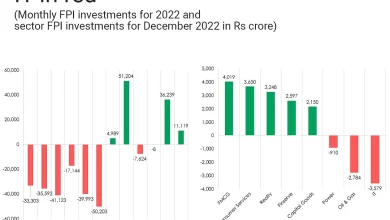Why should you be concerned about Facebook’s massive foray into the metaverse?
Mark Zuckerberg's billion-dollar investment in futuristic technology has the potential to reshape the internet.

It’s the next huge technological breakthrough. It’s a joke, of course. It’s all part of a marketing strategy. It’s a technological dystopia. The metaverse — a virtual world where people can connect, work, and play — is the future of the internet, according to Facebook CEO Mark Zuckerberg, who believes it is the future of his trillion-dollar firm.
Many people are still attempting to comprehend what the metaverse is and whether the futuristic technical notion is something they should take seriously, even though “metaverse” became a catchphrase after Facebook changed its corporate name to “Meta” last month.
Many doubters and detractors have derided Zuckerberg’s proposal to transform Facebook from a social media platform to a metaverse platform. Some critics argue that by focusing on the metaverse and renaming itself while the company is dealing with a public relations crisis, Facebook is diverting attention away from the real-world issues it causes or contributes to, such as harming teens’ mental health, facilitating the spread of misinformation, and fueling political polarisation.
According to internal business correspondence seen by Recode, even some Facebook employees are concerned about the metaverse, as evidenced by queries asked ahead of a weekly staff Q&A on Facebook’s internal messaging platform, Workplace. “How could we avoid a dystopian scenario where the metaverse is utilized as an ‘opium for the masses?'” was one question that received a lot of votes from employees. “How will we meaningfully put safety, integrity, and accountability first in the Metaverse?” was another popular topic. Today, we’re hardly able to cover the real world.”
Others have pointed out that Facebook’s metaverse concept isn’t new – firms like Roblox, Nvidia, and Microsoft have all developed virtual worlds using virtual or augmented reality technology. Others point to the technology’s infancy, pointing out that the digital avatars Facebook has created as stand-ins for our real bodies are cartoonish, awkward, and sometimes legless in the version of the metaverse it has created so far.
Even if these objections and doubts are valid, we should take Facebook’s investment in the metaverse seriously. The metaverse, according to Mark Zuckerberg, is the “successor to the mobile internet,” an invention that revolutionized our lives by allowing us to get online from any place and allowed Facebook to exist. If the metaverse becomes what Zuckerberg wants it to be, it might reshape the world as well, altering our existence from being rooted in the physical world to one in which our digital presence progressively supplements our physical one.
In response to worries about the metaverse, Facebook, which just changed its name to Meta, cited a statement by Facebook executives Andrew Bosworth and Nick Clegg in a September blog post, which says in part, “Meta is not going to construct, own, or govern the metaverse on its own.” We’re having early dialogues about our metaverse vision, even before some of the technologies are available. We’re talking about it right now to make sure that any terms of service, privacy restrictions, or security features are appropriate for new technologies and successful in keeping people secure.”
Facebook has also stated that it does not wish to be the sole developer of the metaverse. “This isn’t going to be a one-company job.” To get it right, it will take collaboration across industries, as well as with experts, governments, and regulators,” another sentence from the blog post states.
The corporation is placing a large stake on the success of this initiative. It’s putting some of the world’s greatest engineering minds to work on it, acquiring virtual reality and augmented reality companies, hiring over 10,000 people to work on it, and investing tens of billions of dollars in the project. And Zuckerberg, who has complete control over his company, appears to be enthusiastic about it.



